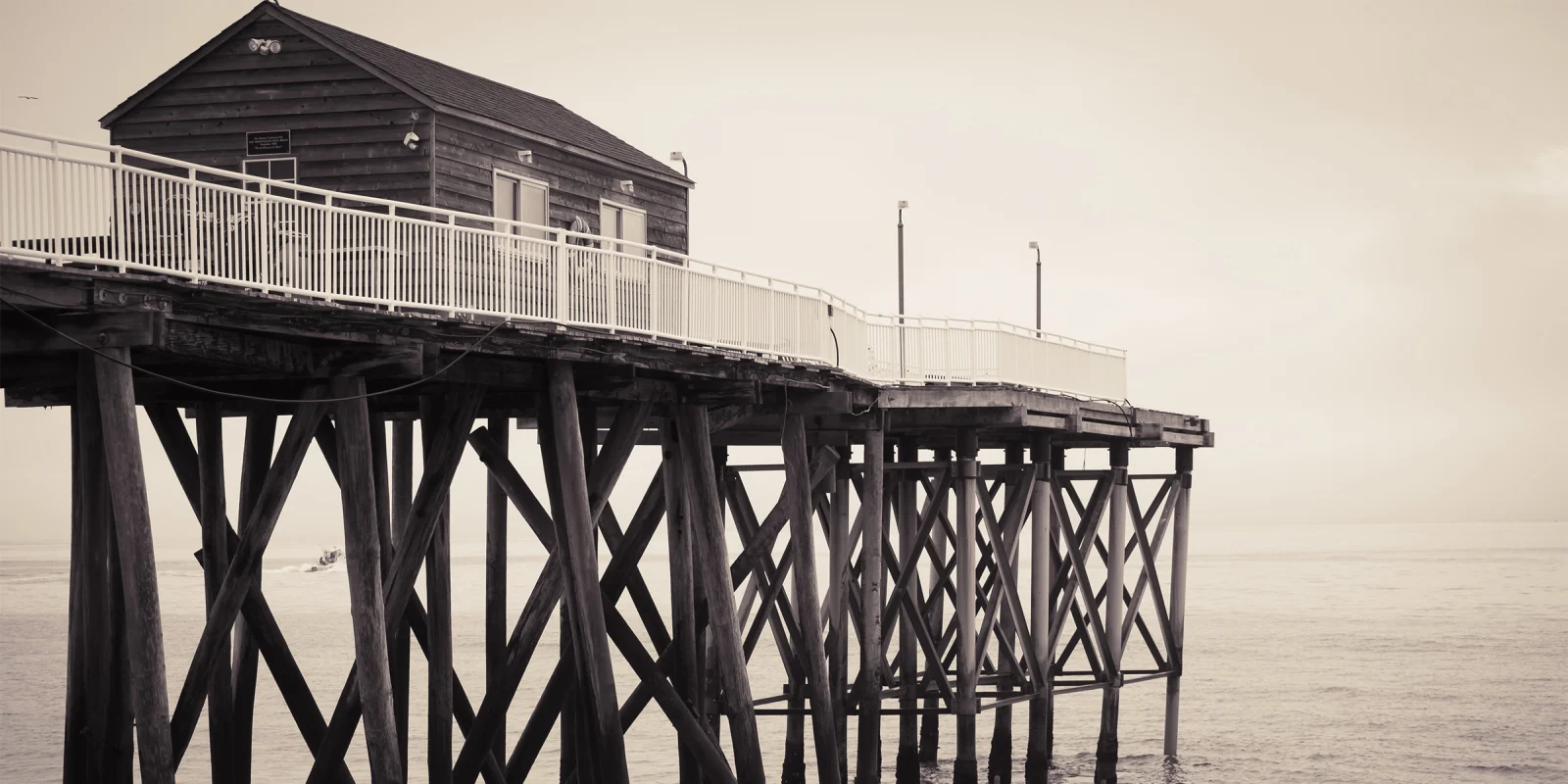This is part of the Medical Humanities series on Op-Med, which showcases creative work by Doximity members. Do you have a creative work related to your medical practice that you’d like to share? Send it to us here.
What type of creative work is this?
Visual art, photography.
What was your inspiration? Did other creative works, if any, influence your creation of this piece?
I used to do a lot of portrait and event photography before I moved to New Jersey. In an effort to get to know the area, I started going out to local beaches. Early on, I noticed a feeling of kenopsia. Since the pandemic has taken hold, I've been significantly more reticent to work with human subjects. I find myself still frequenting some of the same spaces when there are little to no people around.
Why did you choose this medium? What interests you about it?
I love photography because it's essentially a form of time travel. For a variety of reasons, no two stills — even in the same location — are exactly the same. A photograph is like knowing the exact drop of water that you want to pluck from the ocean of time.
How long have you been doing this activity? What got you started? How do you relate it to your medical practice?
I got my first camera when I was five years old. It was a little blue Fisher-Price Perfect Shot. I toyed around with photography off and on but I started to take it more seriously in medical school and beyond. In many ways, photography has allowed me to explore many aspects of the human condition from moments of tremendous bliss to unimaginable sorrow. I think on some level physicians, and particularly psychiatrists, are called to be custodians of the human condition and to make it better whenever possible.
Is there anything else you'd like to tell us about your involvement in or views on arts in medicine?
I find that there are many parallels between photography and psychiatry and I've often used the skills I learned in one trade to complement the other. Fundamentally, both fields are about storytelling. We all exist at the intersection of people, places, and experiences. For better or worse, these things shape who we are and who we will yet be. A lot of my work is rooted in explorations of those three domains. That's essentially what I'm called to do as a psychiatrist. There's hardly a question on a psychiatric interview that isn't related to one of those three aspects.
Often, patients' lives are complicated and messy either as a result of their disease, or psychosocial issues that exacerbate their problems. It's our job to help direct their focus to the things that can improve their well-being.
Omotola Ajibade is a renaissance man. He is currently in residency training for psychiatry while capturing precious images of people, places, and experiences. You can check out his work on his website or by visiting him on Instagram.







